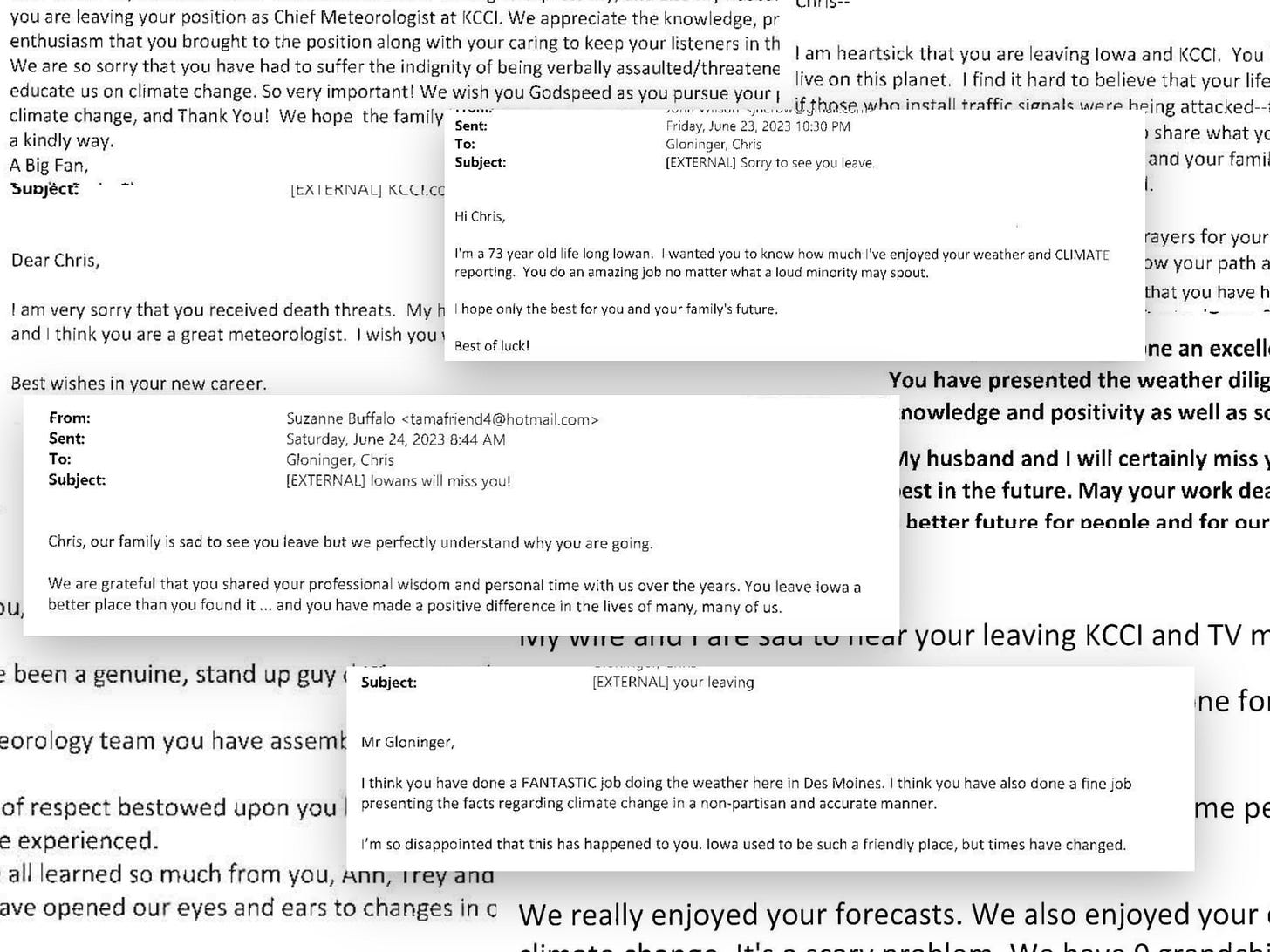The Iowa meteorologist who quit after death threats got nice e-mails, too
He just didn’t get them until after he resigned—and if he'd gotten more sooner, he says, he may have stayed.

When Chris Gloninger found out that not everyone in Iowa hated hearing about climate change, the feeling was bittersweet.
He …


